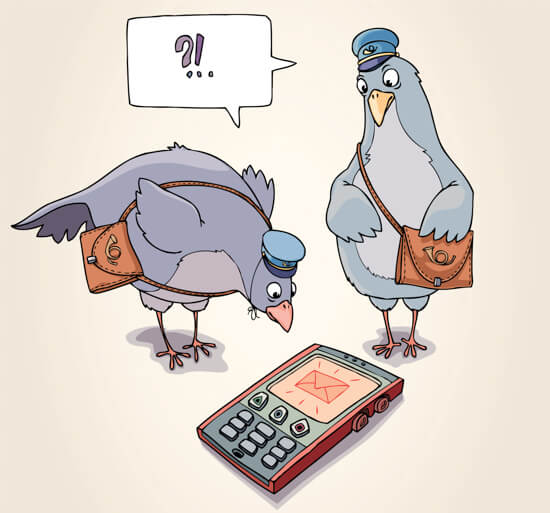
WeChat in China and WhatsApp and Facebook Messenger around the world.
Need I say more?
Ever since the potential of messaging for conversational commerce was unearthed (by none other than the inventor of the hashtag!) more companies have begun to create business models around the concept of a two-way chat box, a.k.a a messenger.
These platforms set themselves apart from traditional Live Chat as they are more intuitive to use, and can be used for a variety of things, whereas Live Chat is traditionally associated with customer Support.
Messenger Platforms Are Always Open
One of the most essential qualities to be successful in your online business, is the ability to be approachable to your customers.
It is one of the basics.
Yet, so many companies are against the idea of keeping an open line of communication between them and their customers/the outside world.
I’ve often heard questions such as, “But what if we aren’t around to answer?” or statements such as, “We can’t be spending time on support right now.”
These amaze me.
If you aren’t around to answer your prospects and customers, isn’t a messenger widget exactly what you would need to let them air their questions/concerns?
Isn’t supporting a customer a good thing—even if a little delayed?
One more reason to have a messenger on your website.
Capture Warm Leads for Your Business
A messenger is a great two-way chat platform, but if you aren’t around to answer a question from a particular website visitor, what happens?
The great thing about most messengers is they allow the visitor to start a conversation on your website, without creating a barrier.
So many websites that use live chat today make you enter your name, email address, phone number, favorite Beatles song, guilty pleasure TV show, and so much more before you can talk to a human.
Abandoning these barriers encourages visitors to start a conversation and also leave their email address to be notified when you reply.
What this email address now becomes is a warm lead you can use in your sales process.
Have a Platform that Enhances Your CRM and Marketing
The back-end of most messenger platforms are automated shared team inboxes.
What’s great is some messengers tie up the ends of your business communication that customer relationship management or marketing automation would have otherwise done.
With a messenger, you build contextual conversations with visitors and customers, which makes it that much easier to make them experience you and your business.
Send Personalized Auto Messages
One of the advantages of having an in-app messenger on your website is you don’t have to wait for customers to say or ask you things before you start talking.
You can initiate personalized, contextual conversations depending on what someone does or doesn’t do on your website.
This means you can pop up a message offering a discounted price to someone who is browsing one of your products, or get feedback from them on a feature they just used.
This way, you create personalized, targeted and contextual messages that get immediate responses.
Do you use a messenger platform on your website?
image credit: shutterstock